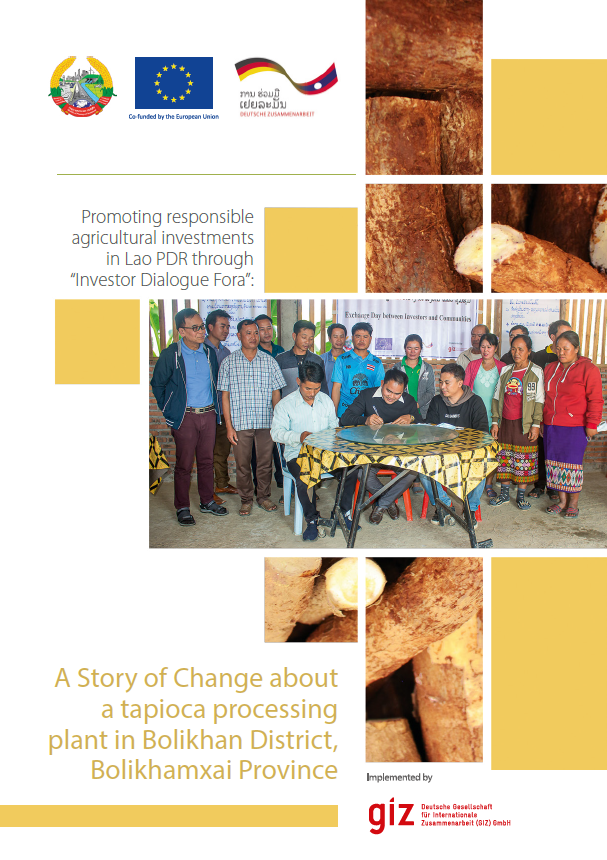Resource information
The livelihood of a large part of the world’s population depends directly on access to land and its secure longterm use. Land access and use have long been organized through informal or traditional tenure rights, but this is changing. In many regions, land use is being transformed by the expansion of large-scale agricultural investments, a development that was triggered by the 2007–08 food, energy, and financial crises.
In Laos, the government has actively promoted commercial uses of agricultural land by private investors. While investment in land has enormous potential to promote the country’s economic development, benefits have been unevenly distributed across society. Some investments have improved infrastructure and access to markets and technology in local areas, but others have been associated with displacement of people, environmental degradation, and land disputes. Moreover, despite hopes to the contrary, many investments have brought only limited opportunities for employment. A major issue is that investors often plan and operate their investments without adequate regard for national regulations and without engaging with local land users.
The Responsible Governance of Investment in Land (RGIL) project was set up to ensure that investments in land are productive, contribute to sustainable land management, and respect the rights and needs of local populations, in particular vulnerable groups and women, in three countries: Ethiopia, Laos, and Uganda. As part of a holistic approach, RGIL has conducted several interlinked interventions including awareness raising and capacity building, organizing multi-stakeholder dialogues, introducing contractual arrangements between companies and workers, Investment Project Monitoring (IPM), and holding an “Investor Dialogue Forum” between investors and local communities. RGIL is co-financed by the European Union (EU) and the German Federal Ministry for Economic Cooperation and Development (BMZ) and implemented by Deutsche Gesellschaft für
Internationale Zusammenarbeit (GIZ) GmbH between November 2019 and July 2023.

